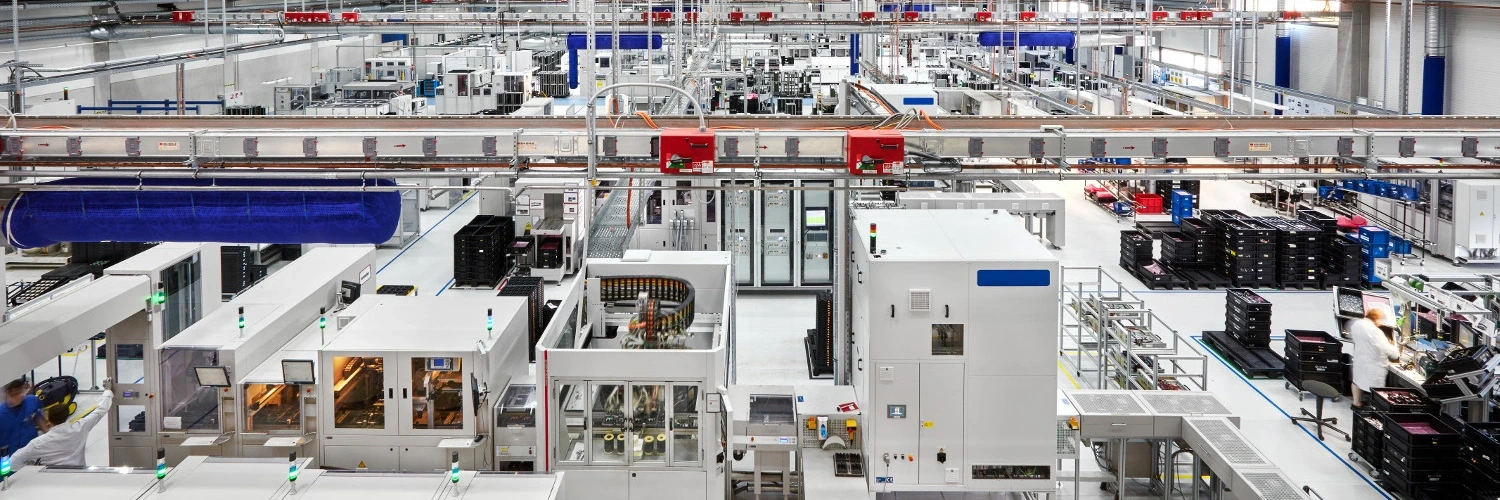With around 10,700 employees at 80 locations worldwide, the Eberspächer Group is one of the leading system developers and suppliers of exhaust technology, thermal management solutions as well as a professional innovation partner for the automotive industry in automotive electronics and air conditioning of special-purpose vehicles. The components and systems from Eberspächer ensure more comfort, greater safety and a cleaner environment. Eberspächer actively shapes the mobility change.
Production processes can be controlled and monitored in real-time
Efficient and transparent production at Eberspächer is at the heart of the company's ability to adapt to dynamic market developments. Customer requirements are increasing rapidly and quality control must fulfill more complex tasks with maximum reliability.
To provide technological support, the company has implemented the iTAC.MES.Suite at its sites in Landau and Tianjin. The solution offers comprehensive downward-compatible ERP, PLM and system interfaces. SAP is connected to the MES as the ERP system. Among other things, the ERP system supports automatic feedback on the production status. Production processes can be controlled and monitored in real-time with the iTAC.MES.Suite. This creates the basis for the direct execution of production orders and dynamic reactions to changes.
Zero-defect strategy – with traceability and process interlocking
The MES ensures the traceability that is essential in the Automotive Electronics business unit. "Our electronics production is becoming more efficient. At the same time, a single defect can have more far-reaching consequences than ever before. Our customers expect components that are placed on a PCB to be traceable. End-to-end traceability is therefore crucial in order to minimize risks, prevent errors and optimize processes", explains Daniel Ignor, Local Process Expert in the Automotive Electronics area of the Eberspächer Group. The MES and its traceability function can be used to track the entire product manufacturing process. This is made possible by tracing all production and process data. Based on this information, process interlocking can be carried out during the ongoing production process.
With its real-time process interlocking mechanisms, the MES contributes to zero-defect production. "Thanks to traceability and process interlocking, we have seen an improvement in quality during series production. We have also been able to save resources in root cause analysis. Further advantages lie in performance monitoring, data collection and evaluation," summarizes Sergej Gertje, Head of IT & MES for Automotive Electronics at Eberspächer.
In line with the digitalization strategy at Eberspächer, those responsible are planning to further expand the area of application towards BI tools and IIoT as well as sensor data evaluation for the purpose of predictive maintenance.

